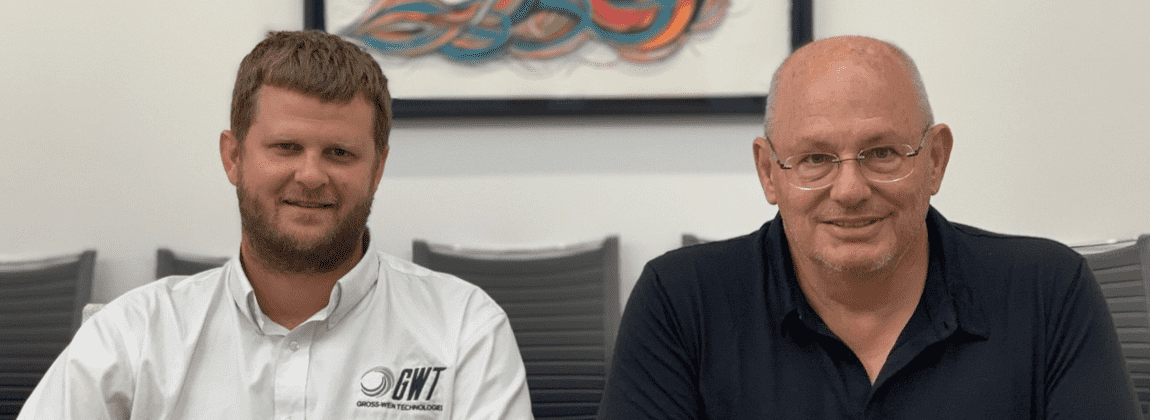Episode 34: How an Ecosystem of Innovation Spurred a Successful Water Treatment Startup

To help combat the issue of treating water in effective and affordable ways, algae-based water treatment company, Gross-Wen Technologies (GWT) extracts and recycles nutrient pollutants from wastewater. Dr. Martin Gross, one of the founders of GWT speaks with Mike Colwell, Executive Director of Entrepreneurial Initiatives at the Greater Des Moines Partnership, about how GWT can remove the nitrogen and phosphorus from wastewater through an algae solution. By harvesting the algae and capturing the carbon dioxide and producing oxygen, GWT cleans the water and the air, at the same time.
The System
The GWT system is made up of vertically oriented conveyer belts with algae connected to the surface. The algae rotates on the belt and spends time in open air absorbing sunlight and carbon dioxide. As it goes through the wastewater, it consumes nitrogen and phosphorus from the water helping the algae to grow. This is similar to what you see in naturally occurring pond scum. The Algae is harvested, pelletized and sold as fertilizer, returning the nitrogen and phosphorus to the land. Find out more by watching these Gross-Wen Technologies videos.
GWT in Wastewater Industry
Chicago is the largest wastewater treatment district in the world. They treat 1.5 billion gallons of wastewater every day. They are considered the most innovative and have a budget to create new technologies. In 2012-2013, they decided they wanted an algae system and selected GWT. At the time the company wasn’t focused on wastewater but creating algae biomass. Because of their interest, GWT entered the wastewater industry.
University Innovations
Innovations go through Iowa State University Research Foundation (ISURF) which supplies lab space, salaries and more. Dr. Gross, along with partner and ISU Center for Crops Utilization Research Interim Director Dr. Zhiyou Wen, sent the invention disclosure to ISURF. There are two patents on the GWT technology. The inventors have licensed the technology and pay ISU royalties on each sale.
GWT began because of the incubator program, Iowa State University Startup Factory, headquartered out of the research park. The one-year program trains someone who is a scientist/engineer how to run businesses. There is an ecosystem of innovation within the research park that has been ideal for GWT.
Grants for Entrepreneurs
The state of Iowa will match the dollars coming in from small business innovation and research SBIR grants. If you didn’t come from the university writing grants, the State of Iowa encourages people to apply and provides consultants to help you write and secure the grant. GWT has received two phase one grants and one phase two grant totaling roughly $800,000 to take their innovation from the university to a pilot scale. The grants allowed the founders to pay themselves a salary and push the company forward.
[Learn more about how SBIR grants can support innovation.]
Listen to the entire podcast: https://www.buzzsprout.com/162832/1656934-martin-gross-gross-wen-technologies
Inspired by this Startup Story? Subscribe to the Startup Stories DSM podcast and check out upcoming events, videos and other free resources dedicated to helping startups and small businesses accelerate success in Greater Des Moines (DSM).
Startup Stories DSM
Startup Stories DSM is a podcast featuring conversations with entrepreneurs who share both their victories and failures on their paths to success. It is produced by the Greater Des Moines Partnership.